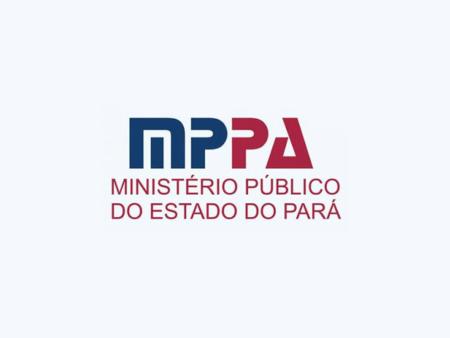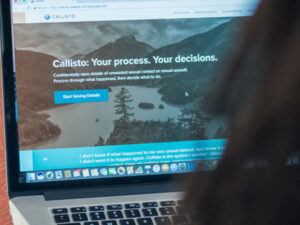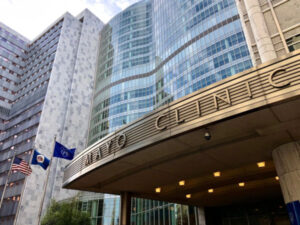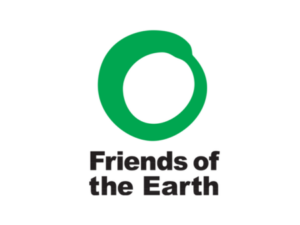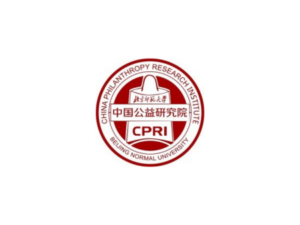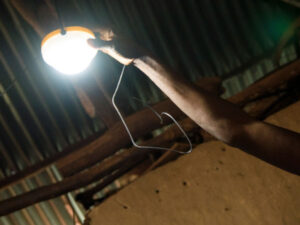Ministério Público do Estado do Pará (MPPA) is the main enforcer of laws, including those related to indigenous communities, families, children, adolescents, and the elderly.
David Terceiro Nunes Pinheiro spoke with Ambika Samarthya-Howard on June 27, 2025. Click here to read the full conversation with insights highlighted.
Ambika Samarthya-Howard: Could you talk about your role as a legislator, and how it relates to the coalition of the Brazilian Association of Members of the Public Prosecutor’s office of the Environment (ABRAMPA), and some of the climate action work?
David Terceiro Nunes Pinheiro: My name is David Terceiro Nunes Pinheiro, I’m a Public Prosecutor at the Public Prosecutor’s Office of the State of Pará (MPPA) in Altamira municipality. I work in the Public Ministry of the State of Pará. I’ve been a prosecutor since 2015. My main area of work focuses on environmental matters here in Altamira, the third largest municipality in the world by territorial area, the largest municipality in Brazil, and definitely the largest municipality in Pará.
Altamira is the center of many environmental problems. We have an Environmental Protection Area (APA), a conservation unit called Triunfo do Xingu, which is the most degraded conservation unit in the state.
We have more than 10 special conservation units here. The central city is not big, but our territory is one of the largest in the world. We need to deal with it, but it’s challenging because most of the territory is unexplored, and consists of conservation units. It means there are no streets, no ways to get there, unless you take an airplane or a boat. My work as a Public Prosecutor focuses primarily on environmental matters, but I also handle consumer protection and third sector issues, particularly collective rights. I’m the only prosecutor who works with environmental issues.
Our situation is very delicate because our environment here has been damaged for decades. There are many special places here that need protection. The APA I mentioned before is one of these special areas. Right now, we have a big problem, especially in Pará, regarding land registration.
Pará has, in terms of territorial registration, three or four times its actual size registered. There is a problem determining land ownership. Who is engaged in cattle ranching? Who is exploiting the land?
Ambika Samarthya-Howard: Are you saying three people would be negotiating who owns the lands?
David Terceiro Nunes Pinheiro: Something like that. On paper, Pará appears to be three or four times larger than its actual territorial size. The problem is not just about ownership of the land. The Land Institute of Pará (ITERPA) monitors all land registrations to provide greater clarity.
We have a system called Rural Environmental Registry (CAR), the environmental registration of rural areas. It’s a highly unreliable system because much of the submitted data can be falsified.
Ambika Samarthya-Howard: Is it due to corruption, or just due to data? Is it intentional misrepresentation that’s making this so difficult or is it just very hard to track land?
David Terceiro Nunes Pinheiro: Both. Of course, there are many administrative oversights, but it’s connected to historical issues in our state. Currently, it’s easier for most people who exploit these areas to remain unidentified because they can simply devastate and degrade everything while falsifying CAR data. The main way we can track them is through field investigations or by cross-referencing data with other organizations, for example, the Agricultural Defense Agency of the State of Pará (ADEPARÁ), where people usually register cattle.
Ambika Samarthya-Howard: Is there anything helpful? Have you used MapBiomas?
David Terceiro Nunes Pinheiro: Yes, we use MapBiomas and information from the National Institute for Space Research (INPE). MapBiomas uses INPE data to create all the mapping and tracking, which is very useful. We have a geographer here in Altamira who specializes in monitoring all this information, the degradation, deforestation, and all the damage to the environment.
We can reconstruct the [recent] ownership history of all these areas, but at the same time, we have problems identifying ownership because of the fragility of the CAR system. For example, we have 18 land registrations under the name of a 16-year-old girl. It’s absurd. At the same time, we have registrations in the name of dead people. This can’t be legitimate, and it’s definitely corrupt. They probably do this to conceal who the real landowner is.
Ambika Samarthya-Howard: Why would they not want to show the real owner?
David Terceiro Nunes Pinheiro: It’s quite simple: they can degrade and devastate everything, and the state will never know who is responsible. If authorities can’t access these areas, they will never identify the perpetrators. It becomes impossible to determine who is operating in the area, who is conducting all the activities there, and who is exploiting the land. The identification of those responsible is the main problem in Pará. I’m not sure about the rest of Brazil.
Ambika Samarthya-Howard: As someone who represents the State of Pará as a public prosecutor, how would you ever find these people?
David Terceiro Nunes Pinheiro: We have several tools that can help us identify them. For example, we can request information from ITERPA or ADEPARÁ. Sometimes the land records contain the actual name of the person. Sometimes we can search for information in the land registration systems.
The CAR system is designed to facilitate land use regulation, but at the same time, it’s very easy to manipulate. Usually, when we make a registration, the state needs to confirm it, but there is a significant delay from the beginning of the process to its completion. People using the land can exploit it for years before the state finds out. It’s a long time between registration and discovering that something is wrong.
Usually, the state discovers it when environmental crimes and damage to the environment are occurring. As the Public Prosecutor of Altamira, we start our investigation to identify who is responsible, because most of the time, the people registered in the CAR are not the people causing the damage. Sometimes it’s a person who lives in another state, with no connection to Pará.
You, Ambika, could be a person who owns a CAR registration in your name. The system was designed to rely on the good faith of the person who works with it.
Ambika Samarthya-Howard: Once you understand that there’s fraud or corruption or something, what’s your role in bringing justice?
David Terceiro Nunes Pinheiro: The Brazilian Constitution allows us to address every kind of environmental crime through two approaches: administrative and civil proceedings, and criminal prosecution. Environmental criminal law in Brazil is quite lenient; people usually don’t go to jail for it. However, civil law has been well-structured, and the main tool is to eliminate the financial gains of these individuals. We freeze their assets, lands, goods, and properties.
Most deforestation crimes end up being resolved through plea agreements. Civil law is the best way to hold them accountable, track them down, investigate them, and impose higher penalties so that it doesn’t incentivize them to continue their illegal exploitation.
Ambika Samarthya-Howard: You bring them in for civil and court cases, you have to show that they’re doing something wrong, that they’re related to the land. How does the role of the quilombolas and the Indigenous groups work in terms of collective rights and this process?
David Terceiro Nunes Pinheiro: Currently, my office doesn’t work directly with Indigenous peoples or quilombola communities. We have a specialized prosecutor’s office here in Altamira that handles these cases. Most cases involving quilombola communities and Indigenous peoples fall under federal jurisdiction, but here in Altamira, we have the Agrarian Prosecutor’s Office, the specialized unit that handles rural conflicts in the state.
Ambika Samarthya-Howard: Are there policies that you’re putting in place in Pará that affect the rest of Brazil?
David Terceiro Nunes Pinheiro: No. We work with ABRAMPA, which is an excellent organization of people engaged in environmental work and interested in sharing our findings. And Luciano [Loubet, president of ABRAMPA] is a great partner. We’ve been exchanging information and expertise.
ABRAMPA participated in our COP30-related event in Pará, and we’re working to share the Altamira experience with other jurisdictions. To my knowledge, no one has implemented this approach before.
Usually, state environmental prosecutors work without comprehensive information about degradation or deforestation. We are trying to track all the people responsible, hold them accountable, and identify those buying the meat or profiting financially. We’re trying to scale this up and create a successful model for other states facing similar problems. We still have significant work to do to make this broadly accessible. We are currently strengthening our partnership with ITERPA to improve our information and data quality.
Ambika Samarthya-Howard: Could you tell us a few success stories in detail, things that you have done that you’re proud of, or any wins that you’ve had?
David Terceiro Nunes Pinheiro: I’ve been working as a Public Prosecutor in Altamira since 2024, so I’m very new here. Before, I was in Monte Alegre, Carrancas, and Carajás. I worked in two cities of Marajó, which were called Bagre and Gurupá. I used to work on everything. The cities are small, so they don’t have specialized prosecutor’s offices. My environmental work in these cities was not rare, but relatively uncommon. The main problems there involved crime. Altamira has these problems too. I tried to work with federal prosecutors, but they were always following the same approach; my colleagues in Pará were simply replicating the work of previous prosecutors. I sat down with my team and began thinking about ways to enhance and improve our work, which led us to where we are now, with promising investigations developing. They are all under judicial secrecy, protected by court seal, so we cannot discuss the details. The data confirms that some cases will soon yield positive results. I can assure you that this approach is working.
Ambika Samarthya-Howard: What do you think is different about those cases that has made it work?
David Terceiro Nunes Pinheiro: First of all, the prosecutors who worked before me and others I’ve spoken with didn’t attempt to collaborate with other government institutions. I’ll tell you how my work usually happens. Here in the office, we typically receive notifications from the State Environment Secretariat (SEMA) informing us that an environmental crime has occurred.
Usually, SEMA sends us a report with figures representing the damage and the person responsible according to the CAR registration. Normally, the Pará prosecutor’s office, and even federal prosecutors, initiate prosecutions based solely on this data. The problem is that all these processes and prosecutions have not succeeded.
We analyzed this approach, studied it, and looked for ways to change this flawed logic. We have been improving our methods for investigating this type of crime, tracking down those responsible and ensuring effective punishment.
Our main focus is not just receiving information from SEMA, but enhancing it, expanding the data, and exchanging confidential information with ITERPA, state agencies, or even federal government entities to create shared databases. Most of the time, these agencies simply don’t communicate with each other, which is absurd.
Ambika Samarthya-Howard: Do you think that ABRAMPA is a good way to solve that problem?
David Terceiro Nunes Pinheiro: Definitely. ABRAMPA has excellent prosecutors. Luciano is one of them. Everyone tries to contribute in some way. Every time we have doubts, we exchange experiences and information. Many people there are well-known in Brazil for their abilities and skills. I can’t be happier to work with them, because ABRAMPA helps to enhance our skills, learn with more experience. And exchange opportunities, maybe even sharing some politics or practices with other states.
Ambika Samarthya-Howard: Before this year, the work you’ve been doing was primarily criminal law, and not environmental law. Where was that?
David Terceiro Nunes Pinheiro: I have always worked in Pará. The public prosecutor’s office where I work belongs to Pará. We have multiple public prosecutor systems in Brazil; every state has one. We also have the Federal Public Prosecutor’s Office, the Union’s Public Prosecutor’s Office, and the Labor Public Prosecutor’s Office.
I started my career in 2015, working in Marajó, in Gurupá, and in Bagre. After that, I went to Canaã dos Carajás, which is a very large city with significant problems. Then I moved to Monte Alegre. And since 2024, I’ve been in Altamira. I’ve been working with environmental and collective rights issues because I became deeply interested in this area.
I connected with ABRAMPA and began looking for ways to strengthen environmental protection even further. My team, my colleagues, are just amazing. It’s not only Sabrina, but also Kiara, Rosana, and Igor, our geographer.
We are trying to change these situations. Brazil is about to host COP30, especially here in Belém. We’re taking advantage of this momentum and seizing the opportunity. We’re trying to make our work clearer and more transparent, so that people can feel confident and secure about environmental protection.
Ambika Samarthya-Howard: What do you think, from your perspective, is the most important messaging?
David Terceiro Nunes Pinheiro: It’s difficult to say. I’m not certain how Pará will approach this leadership role. Our governor, Helder [Barbalho], works very hard to improve conditions for everyone, but at the same time, the public prosecutor’s office operates independently from the government in Brazil. We are exploring ways to contribute to this effort. That’s our primary focus, in my view.
Ambika Samarthya-Howard: Would the main focus be on how Pará is contributing to the climate agenda?
David Terceiro Nunes Pinheiro: Yes. For me, that’s how things should work. The Public Prosecutor’s Office of Pará can play a significant role in reducing deforestation, degradation, and forest fires. Pará is developing the REDD+ system, a mechanism to receive payments for carbon emission reductions. Environmental conservation can be economically viable and generate resources for reinvestment in the state.
The agricultural lobby is very powerful in Pará, with numerous agribusiness operations. We understand that agriculture must operate sustainably. We’re working to ensure clarity, promote sustainable operations, and enforce compliance with our laws. Everyone recognizes that here in Pará, and throughout Brazil, our laws are well-structured, though there are certainly gaps. We need to review and address these gaps to strengthen the legal framework.
Ambika Samarthya-Howard: Having come from a non-environmental legal background in Pará and now working in the environment, what would you say is your biggest surprise?
David Terceiro Nunes Pinheiro: In the beginning, this was a shock. In Brazil, we have approximately 2,000 laws related to environmental protection. It’s quite challenging for us, as we need comprehensive knowledge of these laws. I discovered what has become, frankly, my new passion. I began to understand environmental law more deeply. I read, study, and work to make it more accessible to both myself and my team.
We have an excellent team here, and we are generally very confident in our work. I continue striving, studying, and evolving to deliver the highest quality work, not only for myself but for the society I represent and seek to protect. I’m developing our work into something we can share in the future as an effective approach to protect current and future generations from environmental degradation and deforestation.
Ambika Samarthya-Howard: You’re particularly drawn to it because it’s challenging or because you can see the outcomes?
David Terceiro Nunes Pinheiro: I’m not entirely certain, but I genuinely love this work. I’m not sure if you can say this about professional work, but it was truly love at first sight. I love the challenge. I love the opportunity to deliver results that exceed previous standards. I take pride in sharing my work achievements with colleagues and friends. It’s an approach I try to implement everywhere I work, especially in Altamira, where we truly face significant challenges.
Ambika Samarthya-Howard: Is there anything you want to share with me from your research that I haven’t asked you about?
David Terceiro Nunes Pinheiro: There are places in Pará that need special protection, and it would be beneficial for Altamira and other cities to have specialized prosecutor’s offices dedicated exclusively to environmental matters that could provide more effective and specialized services. I want to see the Public Prosecutor’s Office of Pará expand and strengthen its capabilities.
A network within our prosecutor’s office is creating a specialized unit focused on prosecuting criminal organizations. This initiative is currently under development as an institute within our prosecutor’s office. We expect to see improved results in the future.
Our primary focus is to provide the best possible environmental protection, as it is essential for our collective well-being. This year presents an excellent opportunity to collaborate with government and institutions to enhance accountability.
Ambika Samarthya-Howard: Thank you so much.
Click here to read the full conversation with insights highlighted.
Ambika Samarthya-Howard (she/her) is the Solutions Journalism Network’s Chief Innovation Officer: She leads on innovation and technology, leverages communication platforms for the network strategy and creates cool content. She has an MFA from Columbia’s Film School and has been creating, teaching and writing at the intersection of storytelling and social good for two decades. She has produced content for Current TV, UNICEF, Havas, Praekelt.org, UNICEF, UNFPA, Save the Children, FCDO, Global Integrity and Prism.
* This interview has been edited and condensed.
Read about other social innovators.

